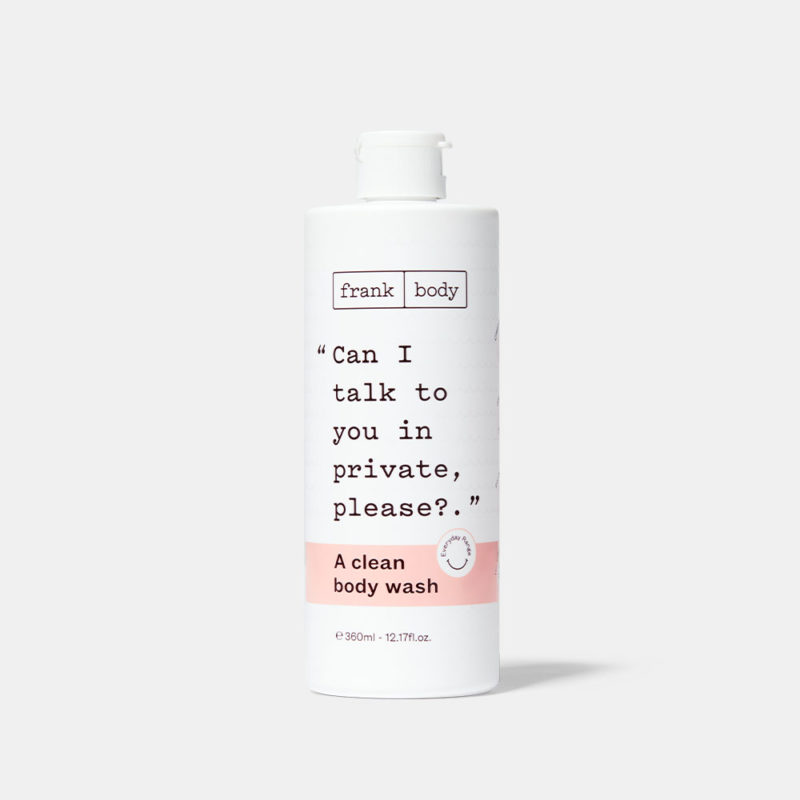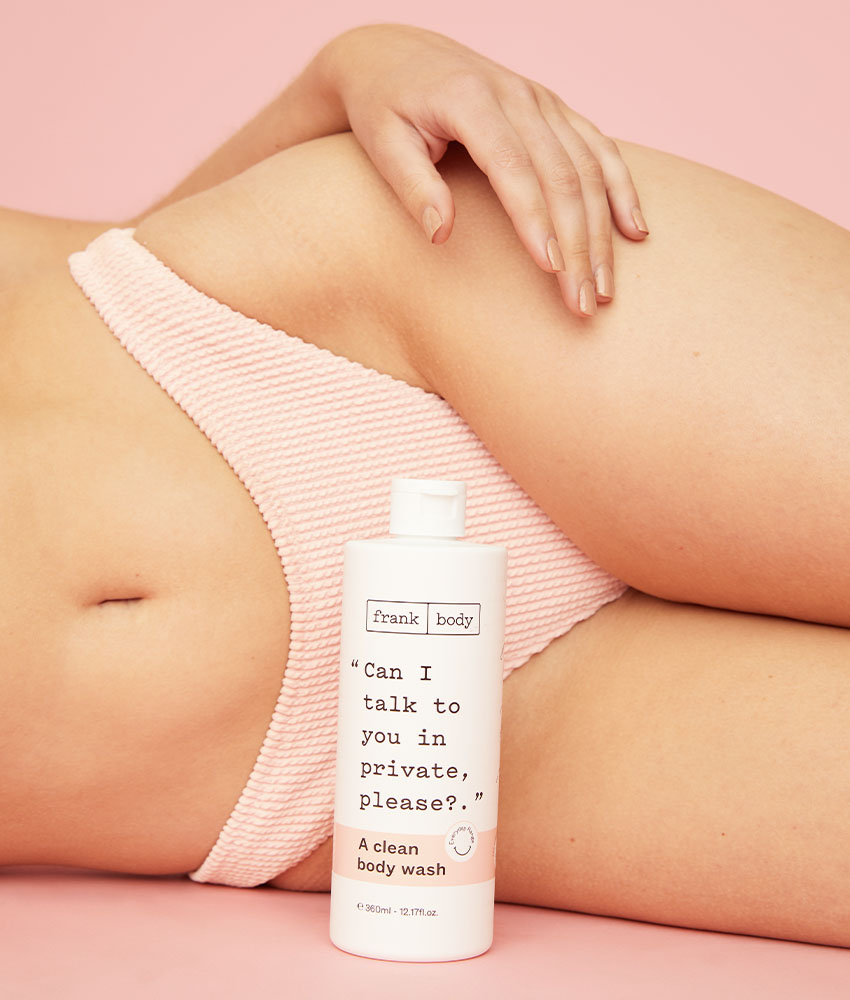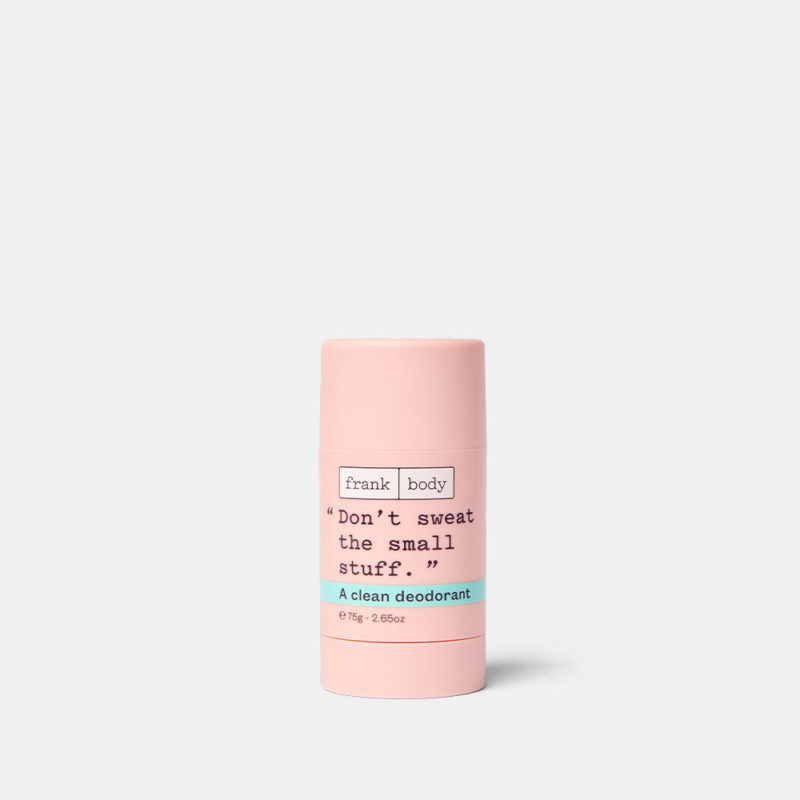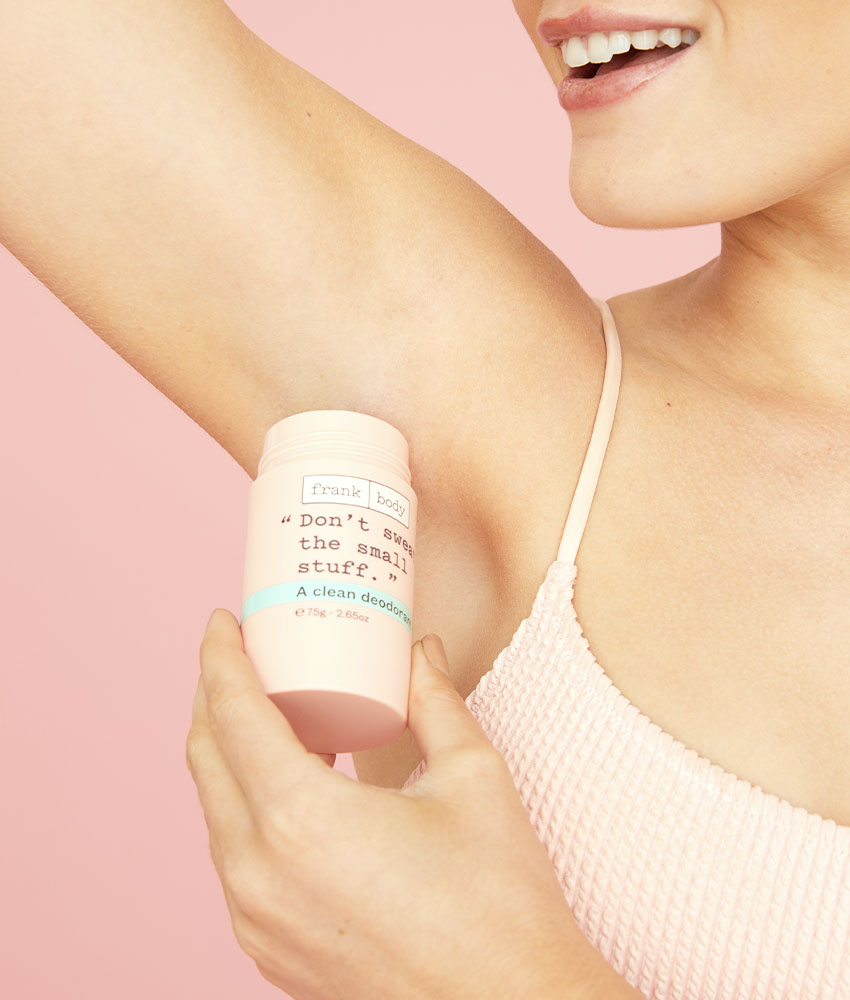You’ll find Steph Yeboah talking to her plants, posing in lingerie, and being a 24/7 total babe. #letsbefrank, she makes it look easy.
A date with me means getting intimate over coffee. Steph divulges her dirty thoughts, shares her favourite skincare ingredient, and professes her love for my new Clean Body Wash. I think she’s into me, so here’s hoping I scored a second date.
F: Hey Steph. Let’s play a game of word association. I say frank, you say…
S: Coffee. Because the unmistakable scent of coffee when you are scrubbing your skin in the shower is powerful, and as somebody that has been a lifelong coffee fan, I am absolutely here for it. Coffee is so good for restarting and sort of jumpstarting the circulation, and it just makes my skin feel incredibly smooth.
F: What are your thoughts on being naked?
S: It is something that is empowering, it is something that is unapologetic, it is something that I no longer associate with low confidence or shame or anything like that. It is freeing.
F: Do you have a go-to beauty product?
S: A beauty product that I use every day and absolutely swear by is niacinamide. It is so good for correcting hyperpigmentation. It moisturises and hydrates the skin, and it’s great for anyone with acne. It has really saved my skin.
F: What’s your favorite thing about my unscented Clean Body Wash?
S: That it does not have any fragrance, so for my dry and sensitive skin it means that I don’t break out in any kind of hives. It means that I am able to reap the benefits of having clean hydrated skin without my skin feeling tight or feeling squeaky clean, which is a feeling you don’t want when using shower gels or body washes. And it just means that I don’t break out, which is always a positive.
F: Who or what gives you butterflies? (Besides me, #letsbefrank.)
S: Jason Momoa. Jason Momoa gives me butterflies, moths, 737 jets. All of it. He just gives me all the things in that region of my body. And below. He’s just a beautiful man.
F: What should we know about the body positivity movement?
S: The body positivity movement is a movement that was created in the early 2000s. It was a movement that was meant to be a safe space for predominantly black women and women of colour who were plus-sized and didn’t feel as if they had any kind of mainstream acceptance. It was a safe space for us to celebrate ourselves, provide visibility, and challenge the notions of what is seen as acceptable in society.
F: And what’s the body acceptance movement?
S: It’s a movement that I think includes other bodies that are marginalised as well, not just plus sized bodies. So bodies that are disabled, or bodies that have “flaws” such as acne or hyperpigmentation. It is a movement that can be joined by everyone to accept the things that society has taught us to hate.
F: Let’s get even more personal. What are you most proud of?
S: I am most proud of the book that I wrote last year called ‘Fattily Ever After.’ It was a book that I created for plus-size women of colour and black women in a bid for us to feel seen, and it talks about the ways in which we navigate society living within different intersections. I’m really proud of it because I feel like it’s the first book of its kind and it’s a book where Black fat women can finally feel seen in a society that has marginalised us for years and years and years. I’m really proud of that.
F: What do you do to love yourself every day?
S: Anytime I receive a nice comment or a compliment I write it down on a post-it note and put it away in a mason jar. At the end of the year, or whenever I’m feeling really sad, I open up that mason jar and read all of the compliments and really internalise all of the good things that people have said to me.
I’ve also developed a habit, or a knack, of buying really pretty bits of lingerie. Anything really nice or frilly or lacy. I like to walk around my flat in them because it makes me feel really confident. It makes me feel empowered. And it makes me appreciate my body a lot more. Seeing myself in clothing that has historically been tailored toward smaller bodies makes me feel like my body can be normalised as well.
F: What’s something you do every day that nobody knows?
S: I tend to talk to my plants because I feel like it helps them grow. I don’t know about anybody else, but for me, I treat my plants kind of like they’re my kids.
F: I know words matter. Can you talk to my followers about the word fat?
S: The word fat has always had negative connotations because people tend to associate the word with ugly, hideous, or grotesque, and use it as an insult. For myself and others within the body positive and body acceptance space, we have reclaimed that word because it is not negative. It is literally a descriptive word of a body type.
F: How would you describe your self-love journey?
S: My journey of self-love has taken a very, very long time. I want to say perhaps 15 years or so. I came from a place of extreme self-hate due to bullying, and for most of my teens and early twenties I detested my body. I hated it and I did everything possible to make myself smaller both physically and metaphorically. It wasn’t until I came back from a holiday when I was 23 that I realised I had an issue that needed to be sorted out.
I started joining body positive groups on Facebook and Instagram. These accounts have been instrumental in helping me learn to love myself. I needed to create a social media feed that represented me. That meant joining Facebook groups that celebrated fat bodies. It meant filling my timeline with women who looked like me. And I began to slowly accept my body and myself.




